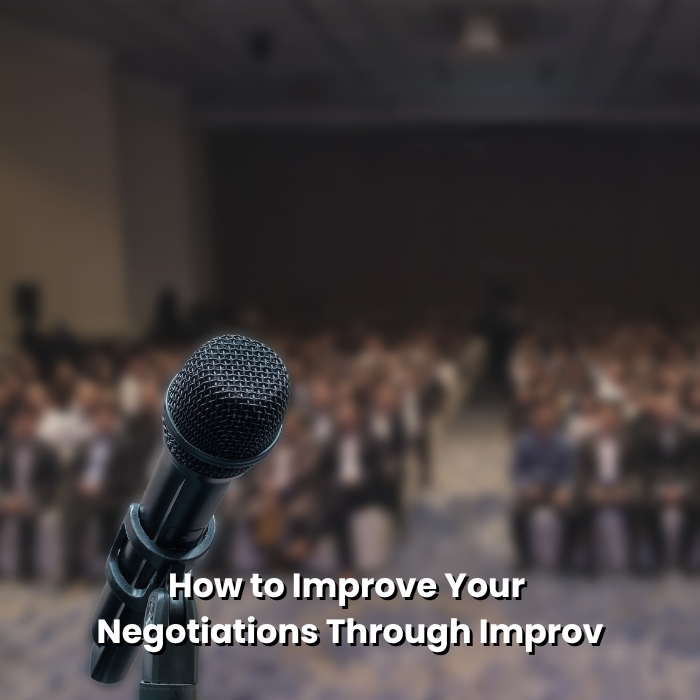
Negotiate Your Personal Confidence Boost Part II
Do you periodically suffer from a crisis of confidence? If so, you’ve come to the right place. In Part I of this four-part series I asked you to rate your confidence on a scale of 1-10 and noted that most women rate themselves lower than men. We discussed why this is a serious problem and celebrated the good news that if you lack confidence, it’s not too late as you can build it. I promised that in this part I would share concrete tips, tools and exercises that will empower you to negotiate your own personal confidence boost. Because all of life is a negotiation and the most important one starts with you.
Are you ready to dive in? Here goes:
Step 1: Love On Yourself
When is the last time you loved on yourself? Or truly celebrated your successes? If you’re like most women, I bet you beat yourself up about your so-called failures, but rarely give yourself credit for your successes.
How can you expect to show up with confidence if you continue to trash-talk yourself and undermine your own self-esteem?
The reality is that we have more successes than failure, but we attach more emotional intensity to our perceived failures and so they tend to stick more.
Here’s a couple quick exercises to start retraining your brain to love yourself more. In doing that you’ll increase your self-esteem and with it your confidence.
I Brag List
Start by listing 25 things you love about yourself. I invite you to start your own personal Brag List. That’s right. I want you to brag on yourself. List as many positive attributes as you can think of about yourself. Don’t be shy. Don’t worry about being cocky. List your assets – physical, mental, attitude. Things you’re good at. Things you’ve accomplished. Nice things other people have said about you. Or how about nice things people could or should say about you? List them all. Keep going until your hand gets tired. Then take a break and list some more!
II Mirror Exercise
We all need acknowledgement. Here’s a simple exercise to help give yourself that acknowledgment daily. I say it’s simple. And it should be. I’ll caution you though that we’re taught NOT to acknowledge our self like this so it will be unfamiliar. And because of that, it will feel strange at first. You may have an emotional reaction … and that’s perfectly okay.
Before bed each night, look in the mirror and appreciate yourself for everything you accomplished that day.
- Start with a few seconds of connection by looking directly into your eyes
- Be sure to really recognize yourself by addressing yourself by name.
- Acknowledge yourself out loud for all the things you accomplished that day. These don’t have to be earth-shaking accomplishments. It can be a simple promise to yourself that you kept or completing a task that’s been hanging over your head or something kind that you did for another. Acknowledge everything and anything you can be proud about.
- Make sure to maintain eye contact (even if it feels awkward).
- Say “I Love You”. Yes, that’s right. Tell yourself that you love you. We don’t do this often enough.
- Let yourself stand strong and really allow yourself to feel the impact. When you’re done, I invite you not to turn away feeling embarrassed – let yourself feel it, even the discomfort.
Do this every evening for a full month minimum. Allow the time to retrain your brain, to let it absorb that you are loved … unconditionally.
Step 2: Get Out of Your Comfort Zone
Your brain tries to keep you safe. However well-intentioned it may be, it does you a disservice when it encourages you to stay stuck in your comfort zone. If you get in your car and realize that the emergency brake is on as you head onto the highway, would you keep driving with the brake on? Of course not. And yet, I bet you travel through this thing called life with your psychological emergency brake on every day.
Or think of it like a governor, those devices that limit the speed at which a vehicle can travel. We put one on the kids’ snowmobile when they were younger so the boys couldn’t go at warp speed before their skill caught up to their cockiness. Is that any way to go through life as a grown woman? Do you want to live your life with a permanent governor attached to hold you back when you start gaining speed?
It’s as if we each have a built-in thermostat set to our own personal comfort zone. As we start to succeed in life, or take bigger risks, or find our self beyond our expectations, that thermostat sends a signal to our brain to quit firing on all cylinders, to ‘drop the temperature’ back into our comfortable range.
The only way to change that pattern is to reset the thermostat. You do that by getting outside your comfort zone to create new tolerances and expectations.
I remember growing up, our idea of a 5-star vacation was the local Hav-A-Nap motel down the street. As I got older and started travelling for work, I got a taste of the Holiday Inn and thought that was high living. Then as I attended glitzy conventions, I got a taste of the Ritz Carlton. As my tolerances and expectations got higher, my thermostat increased. I grew beyond the Hav-A-Nap motel only by getting beyond my preconceived bars.
Think of your comfort zone as a self-constructed prison, built on words like ‘can’t, should, need to, have to, ought to, must not’ … you get the idea. Why not flip your script and in so doing flip your mindset from one of doubt and limitation to one of confidence and possibility?
Remember that circus elephants are trained by getting tied to a peg with a simple rope. This rope holds them back as babies. They strain against the rope but can’t break it. Later in life, when their strength far outstrips the potential of that tiny rope to hold them back, they don’t even try to break it. They’ve given up, based on limiting beliefs that no longer hold true.
Will you continue to show up as that baby elephant, held back by a puny rope, or are you ready to recognize that you’re stronger than that rope?
Stay tuned next week for more simple and powerful exercises and tips to build confidence.
- How to Negotiate Problem-Solving - January 21, 2025
- Negotiate a Boost to Your Immune System - January 20, 2025
- Negotiating Tips from a Former Hostage Negotiator Isaac Betancourt - January 16, 2025






